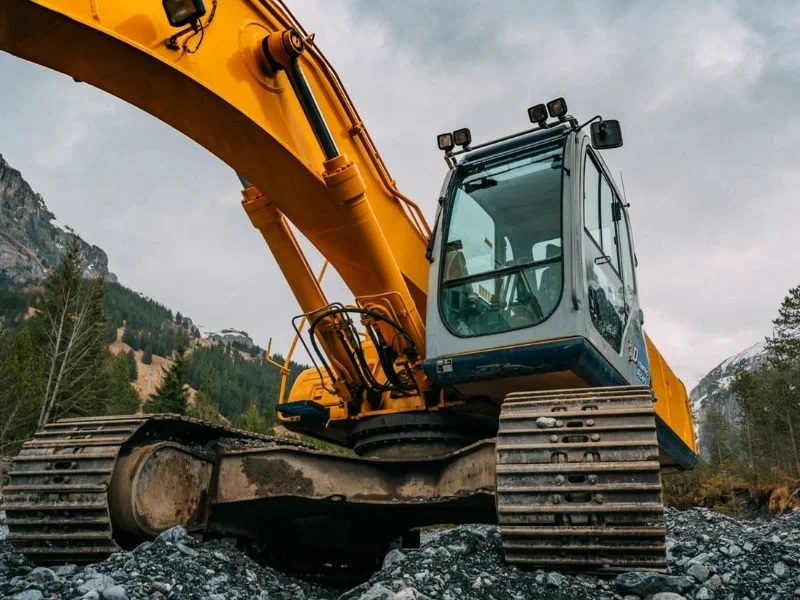Construction has long been a sector characterised by its robustness, creativity, and continual evolution, with innovation playing a pivotal role. As the industry strides further into the 21st century, hydraulic engineering in construction has emerged as one of the avant-garde domains reshaping the way structures come to life. This specialist field is an amalgamation of science and technology focusing on the fluid mechanics of water and its interactions with the environment, particularly in the context of design, maintenance, and improvement of construction projects.
Understanding the Influence of Hydraulic Engineering
The impact of hydraulic engineering is multifaceted, extending far beyond its traditional remit. In contemporary society, this arm of engineering is indispensable for the design of frameworks that manage water resources or utilise hydraulic force for construction processes. Central to this endeavour is the determination of water flow patterns, pressures and forces, which play a crucial role in ensuring the integrity and longevity of structures.
From the conceptualisation phase to the final touches, hydraulic engineering injects precision and functionality into the veins of construction projects. By leveraging the principles of fluid dynamics, construction engineers erect edifices that not only stand tall against the physical demands of their environments but also harmonise with the ecological aspects surrounding them.
Advancement in Construction Techniques
Hydraulic engineering signifies a quantum leap forward in construction technique advancements. Cutting-edge equipment such as hydraulic excavators and lift systems are quintessential examples, representing the transformative effects of hydraulic power in construction operations. With this innovative technology, the industry has embraced increased efficiency, enhanced safety, and improved cost-effectiveness.
However, hydraulic engineering is not limited to heavy machinery. It also encompasses the tailored design of water management systems crucial for urban development, including stormwater systems, sewage frameworks, and flood control infrastructures. Integrating these systems seamlessly into the built environment requires in-depth expertise and is a testament to the intricate role hydraulic engineers play in modern construction.
Specialised Services: Remedial Engineering
As structures age, they often require retroactive interventions to maintain or restore their efficiency and safety. This is where the expertise of a remedial engineer becomes invaluable. These professionals specialise in diagnosing and rectifying issues in ageing infrastructure, ensuring continued functionality and compliance with current standards.
Remedial engineers often work in collaboration with hydraulic engineers to address specific challenges posed by water and fluid mechanics. Their remediation efforts can span from simple repairs to comprehensive overhauls, which may involve replacement or enhancement of hydraulic systems within existing constructions.
Addressing Challenges through Waterproofing Repair
One significant challenge frequently encountered in the field of construction is water ingress and its deleterious effects on the structural integrity of buildings. To confront this, the construction industry frequently relies on waterproofing repair solutions. This specialised process not only protects structures from water damage but also extends their lifespan and enhances their resilience against environmental elements.
Hydraulic engineering plays a pivotal role in waterproofing by designing systems that control the movement and pressure of water against building envelopes. By doing so, engineers can prevent seepage and the deterioration that often leads to costly and disruptive repairs. Effective waterproofing systems therefore are a key component of sustainable construction practices and contribute to the maintenance of structural health.
Incorporating Sustainability and Innovation
Modern hydraulic engineering encapsulates an increased emphasis on environmental stewardship. Projects now prioritise the sustainable management of water resources, incorporating practices such as rainwater harvesting, water recycling, and the protection of waterways from contamination caused by construction activities.
Innovation is ceaselessly progressing within this realm as well. Hydraulic engineers are constantly at the cusp of technological breakthroughs, exploring new materials and methods to enhance the efficiency and environmental performance of construction projects. This includes the use of smart sensors to monitor water systems, employing green building materials for waterproofing and the implementation of computer-assisted designs for precision and waste reduction.
Looking to the Future
The future of construction is unequivocally intertwined with the continued evolution of hydraulic engineering. With urbanisation growing and climates changing, the demand for sophisticated hydraulic solutions becomes increasingly pressing. The sector is thus challenged to advance its practices, adopt new technologies, and foster professionals equipped with the skills required to navigate this dynamic landscape.
Ensuring that new developments are resilient in the face of such demands is not a choice; it is a necessity. Hydraulic engineers are therefore central characters in the ongoing narrative of construction, charged with the responsibility of devising systems that ensure built environments are not only functional and aesthetically pleasing but also secured against the untameable force of water.
As the construction industry moves forward, it is certain that hydraulic engineering will remain at the forefront of its progress, consistently pioneering methods that are innovative, responsible, and long-lasting. In essence, the art of building has found an indomitable ally in hydraulic engineering, carving the path towards a legacy of enduring structures that epitomise the zenith of human ingenuity and foresight.
Thus, the significance of hydraulic engineering within the construction sector cannot be overstated. It has, and will continue to have, a profound impact on the shaping of skylines and the preservation of our built heritage. In recognising this, one can scarcely overlook the ingenuity of hydraulic engineering in construction as it remains an essential support column for the industry’s continued advancement.



